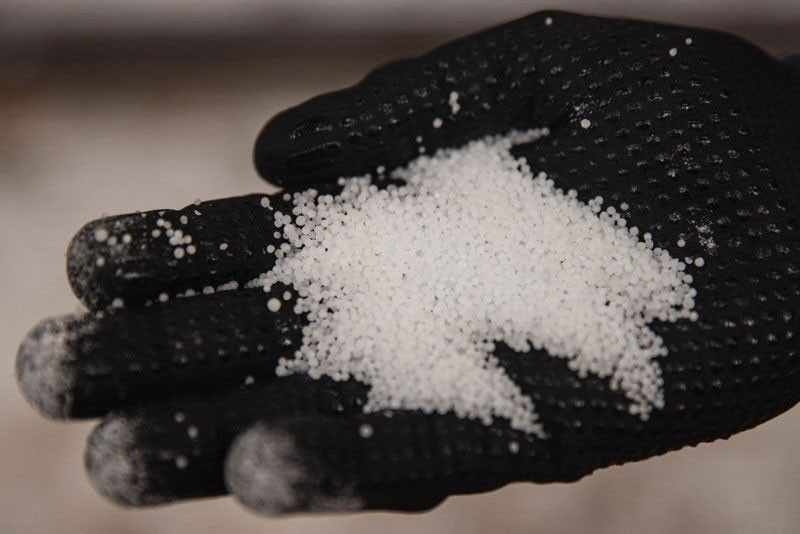Ramp up local fertilizer production – Villar

MANILA, Philippines — The country must ramp up its production of organic fertilizers to reduce farmers’ dependence on expensive imported fertilizers while helping increase their yield and protect the soil from degradation, Sen. Cynthia Villar said.
Villar, who chairs the Senate committee on agriculture and food, cited bad practices in agriculture that resulted in 38 percent degradation of soil even as she pushed for composting and the use of organic fertilizers.
She stressed the need to produce organic fertilizers from agricultural residues like rice straw, corn stover, animal manure and others that can replace inorganic/synthetic or chemical fertilizers.
“You are one with us in actively promoting organic farming methods, especially producing organic fertilizer. Since we have many biodegradable wastes in our environment, I have been transforming them into useful things,” Villar said in a recent address to officials of the Bureau of Soils and Waste Management (BSWM).
“We have many of them in our markets and in our own homes, so there is a need for a facility for them near our farm trading posts and markets,” she said.
Villar said the biodegradable wastes in residential areas consist of kitchen and garden wastes.
“We only need to collect and convert them into organic fertilizers or compost which can be used by our farmers, most especially now that fertilizers are very expensive, and sometimes, they are not available for our farmers,” she said.
The senator, who also chairs the committee on environment and natural resources, said she has personally caused the establishment of 117 composting facilities nationwide.
Sixty-seven of them are found in her hometown in Las Piñas, while 50 are located at Vista Land Communities.
“Villar SIPAG is included in this advocacy. We are distributing for free our organic production to our farmers and plantitos/plantitas across the country,” she said.
Villar said she started this advocacy in 2002 to help minimize waste and to encourage the use of biodegradable wastes for healthy soil.
She also said Republic Act 10068 or the Organic Agriculture Act was passed into law in 2010 which mandates the expansion of organic agriculture in the Philippines.
There is also RA 9003 or the Ecological Waste Management Act which mandates the segregation and reduction of wastes through recycling and composting.
The two laws promote protection for the environment, especially organic agriculture through composting, Villar said.
“To realize this, I need to remind always the BSWM because it is important that we give Composting Facilities for Biodegradable Waste (CFBW) to our farmers and local governments in the whole country. I hope you would do this, particularly now that chemical fertilizers are so costly,” she said.
Villar said this project was also being supported by the Department of Agriculture’s National Organic Agriculture Program, and the DA-High Value Crops Program.
The CFBW consists of one rotary composter and one shredding machine.
“It is really important that we take care of our soil to have productive harvests and lower hunger, food insecurity in our country,” Villar said.
- Latest
- Trending































